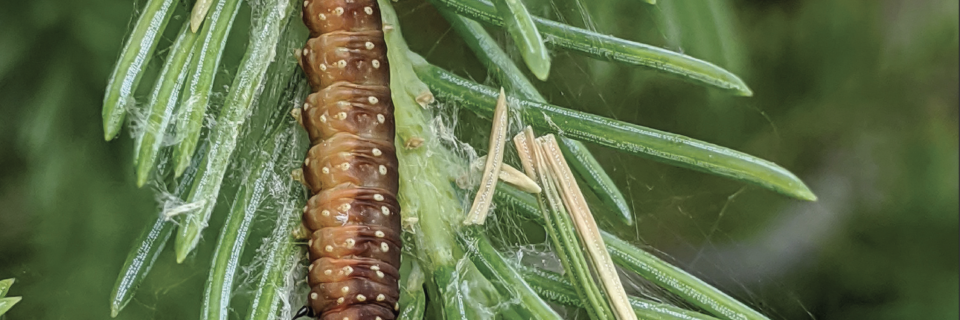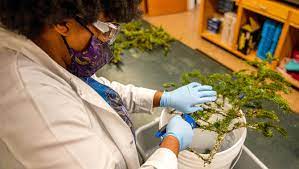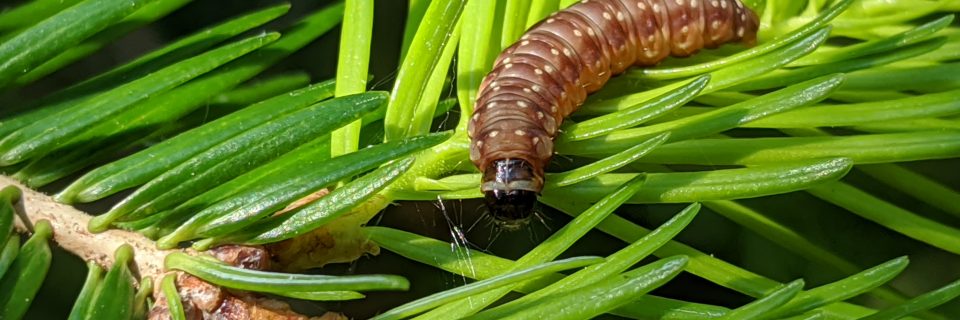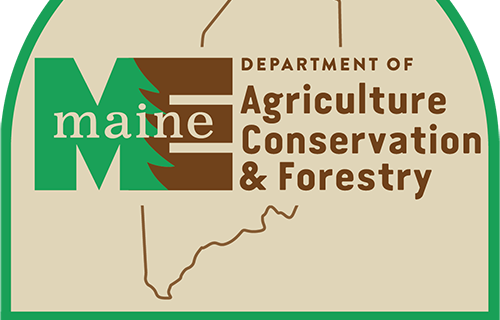In late 2021, the Maine Spruce Budworm Task Force held a workshop to revisit and provide progress reports on recommendations that were made in the 2016 SBW Task Force Report. Each of the seven task teams, representing different areas of research and expertise, were asked to provide updates on their work as well as prioritize future needs regarding the potential for a spruce budworm outbreak. This updated executive summary provides a number of links for those interested in newly published ... Read More ›
Spruce Budworm Early Intervention Webinar – Background, facts, current research & more!
Listen to this open house style webinar designed to inform the public on Early Intervention Strategy (EIS), a means of detecting and treating small spruce budworm "hot-spots". Learn what Early Intervention Strategy means How treatments for budworm are conducted What products are being used How Healthy Forest Partnership is ensuring safety when treatments are required Landowners in Maine are utilizing Early Intervention Strategy (EIS) to assist in keeping spruce budworm populations low ... Read More ›
2021 Spruce Budworm Monitoring Report released by Maine Forest Service
2021 marked the first year of the current spruce budworm population build-up that aerial surveys were able to detect larval feeding damage and the second year that appreciable feeding damage was detectable during ground surveys. Despite this, average spruce budworm moth capture across Maine has dropped for the second consecutive monitoring season. Results of the CFRU-led L2 survey are forthcoming and will help to shed additional light on Maine’s spruce budworm situation heading into ... Read More ›
County Ag Report (WAGM) Talks With Neil Thompson on SBW and Christmas Tree Growers
Presque Isle, Maine WAGM spoke with Neil Thompson (UMFK/CFRU) about the rising budworm population in the Saint John Valley. "Christmas tree farmers of course have a very high standard for aesthetics so when the budworm chews the leaves off the tree that can no longer be a sellable Christmas tree because the thing you’re hanging ornaments off of is halfway bare or completely bare." The University of Maine Orono has built a new L2 lab, the first of its kind in the nation. Pheromone traps ... Read More ›
New SBW Testing Lab at UMaine
UMaine announces opening of Dr. Angela Mech's spruce budworm testing lab, supported by the Cooperative Forestry Research Unit. ... Read More ›
SBW on the Comeback
Bangor Daily News coverage of the spruce budworm increase in Maine. ... Read More ›
Maine Forest Service Releases 2020 SBW Report
Background As growing spruce budworm populations continue to fluctuate in Maine, the Maine Forest Service, University of Maine Cooperative Forestry Research Unit (CFRU), and our cooperator network are tracking populations carefully in anticipation of an approaching outbreak. Historical data tells us that Maine is due for another SBW outbreak and monitoring efforts illustrate that over the last several years, SBW populations appear to have risen above endemic levels experienced between outbreak ... Read More ›
Maine L2 survey map released
Analysis of L2 sampling collected in the fall of 2020 is now available on the L2 research map page. ... Read More ›
Maine L2 2021 Update
Neil Thompson, Irving Woodlands Forestry Professor at the University of Maine at Fort Kent, presents a short update on findings from spruce budworm second in-star (L2) research in Maine. Watch the short video here. ... Read More ›



